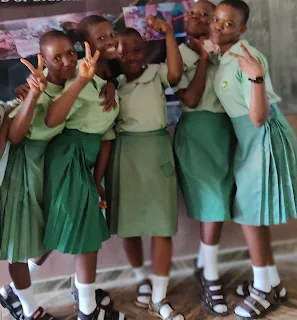Empowering Girls Through Education: Unlocking Their Full Potential
Introduction:
The education of girls is not only a fundamental human right but also a catalyst for positive change in societies. Despite progress in recent years, there are still millions of girls around the world who are denied access to education due to various barriers. This article aims to shed light on the importance of girl child education, its benefits, and the challenges that need to be addressed to ensure every girl has the opportunity to learn and thrive.
1. Breaking the Cycle of Poverty:
Education is a powerful tool in breaking the cycle of poverty. When girls are educated, they are more likely to earn higher incomes, contribute to their families' financial stability, and invest in their communities. Educated girls grow up to become empowered women who can make informed decisions about their health, careers, and families, thus positively impacting future generations.
2. Improving Health and Well-being:
Access to education plays a significant role in improving the health and well-being of girls. Educated girls are more likely to have knowledge about nutrition, menstrual cycle hygiene, and reproductive health, leading to healthier lifestyles and reduced maternal and child mortality rates. Education also equips girls with the skills to protect themselves from early marriages, teenage pregnancies, sex abuse/ molestation and sexually transmitted infections.
3. Empowering Girls and Promoting Gender Equality:
Education is a powerful tool for empowering girls and promoting gender equality. It provides them with the knowledge, skills, and confidence to challenge gender norms and stereotypes, enabling them to pursue their dreams and aspirations. Education empowers girls to become leaders, change-makers, and contributors to their communities, narrowing the gender gap and fostering a more equitable society.
4. Combating Child Marriage and Gender-Based Violence:
Education acts as a protective factor against child marriage and gender-based violence. When girls are enrolled in school, they are less likely to be married off at a young age and more likely to delay childbirth. Education empowers girls to recognize their rights, speak up against violence, and seek support when needed. By providing a safe and supportive environment, schools can become a powerful force in preventing and addressing gender-based violence.
5. Addressing Barriers to Girl Child Education:
Despite progress, significant barriers still hinder girls' access to education. These include poverty, cultural norms and traditions, gender discrimination, lack of infrastructure, child labor, and conflict. To ensure every girl has the opportunity to learn, it is crucial to address these barriers through targeted interventions, such as providing scholarships, improving school infrastructure, promoting gender-sensitive teaching practices, and educating the communities on the importance of girl child education.
Conclusion:
Investing in girl child education is not only a matter of human rights but also a strategic decision that benefits individuals, communities, and societies as a whole. By providing girls with quality education, we empower them to reach their full potential, contribute to their communities, and break the cycle of poverty. It is our collective responsibility to remove barriers, promote gender equality, and ensure that every girl has access to the education she deserves. Only then can we create a more inclusive, equitable, and prosperous world for all.

Comments
Post a Comment